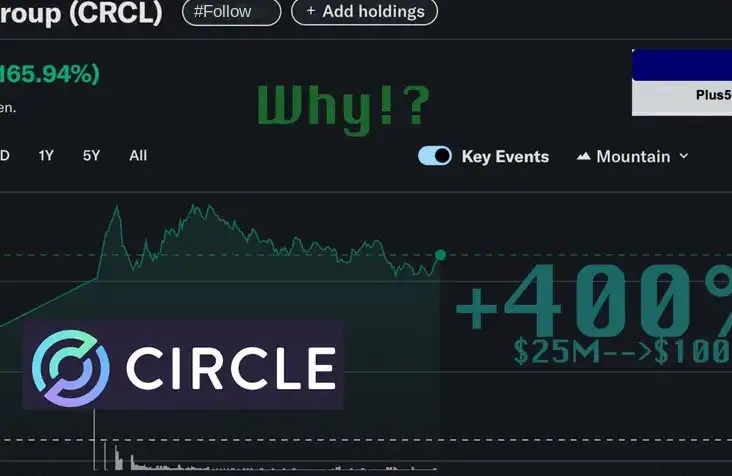OneKey has completed its Series B financing round, reaching a valuation of $1.5 billion, with endorsement from YZi Labs and Coinbase.
OneKey is taking the first step towards joining the unicorn club in the Web3 encryption field.
The open-source encryption hardware wallet (cold wallet) company has seen its users' assets and Defi scale grow 11 times in the past three years, while its product sales have soared at an average annual rate of nearly 300%.
It is reported that OneKey has completed its Series B financing round, reaching a valuation of $1.5 billion. This round was led by YZi Labs (formerly Binance Labs) and is the largest investment the company has received in the hardware wallet field to date. Past supporters include Dragonfly, Ribbit Capital, Coinbase Ventures, and other top venture capital firms.
This six-year-old startup, which has 60 employees, is known for its code open-sourcing, strong security reputation, and low-key and pragmatic quality. Its products have been adopted for the long term by major trading platforms and well-known projects.
"From day one, OneKey has been a completely open-source product, and we have confidence in our code, as does the community."
— OneKey Founder and CEO Yishi Wang
Asset Security Requires Hardcore
For newcomers to the crypto world, whether using Bitcoin, Ethereum, Tron, or Solana, managing private keys is always a painful task.
Many people use plug-in wallets that generate private keys in an online environment. Some people do not want to bother with the details of private keys and keep their funds on large trading platforms like Binance. However, if you want real control over your private keys, isolating risks such as network attacks, Trojan infections, and backdoor vulnerabilities, then choosing an open-source and audited trusted hardware wallet or cold wallet is the way to go.
Earlier this year, a well-known "earning browser" was found to have quietly updated its code, resulting in a large number of ordinary users and earning studios having their private keys stolen. Fortunately, many studios were using the OneKey hardware wallet, which uses physical key isolation and manual confirmation, allowing them to escape unscathed.
According to WeChat Index statistics, OneKey has a higher mindshare among Chinese users than all other similar products, making it the most recognized hardware wallet currently. At the same time, it is the only hardware wallet jointly adopted by top trading platforms such as Binance, OKX, Bybit, and Bitget.

During an offline event aimed at security experts, OneKey's technical team demonstrated their solid security design capabilities. At that time, a certain trading platform experienced a hack resulting in the theft of over $1.5 billion, as the hardware wallet they were using couldn't parse the complex calls of a Safe contract, only displaying an unrecognizable encoding on the device, ultimately leading to operator error.

However, if a OneKey product had been used, the transaction would have been correctly parsed, displaying the full call structure and providing a risk warning. This capability was achieved because OneKey has long dedicated significant resources to contract parsing and secure interaction between hardware wallets and app wallets.
The average selling price of a hardware wallet is just over $100. No one wants to pay a hefty "security tuition fee." Between the purchasing cost and the painful consequences, a hardware wallet is the obvious choice.

In the open-source space, OneKey has maintained high activity levels, with the speed of issue and PR handling in its Github repository even surpassing many well-known software companies. Community users can review and reproduce all of OneKey's code and firmware compilation processes at any time, providing unprecedented transparency and auditability for users and security experts.
Compared to many hardware wallets in the industry that use closed-source designs, OneKey has achieved full openness from hardware to low-level firmware and UI. OneKey believes that true security comes from thorough transparency.
Going Beyond Cycles and Challenging Boundaries
This company has achieved some success in the Asian market and is ambitiously setting its sights on overseas markets.
In the hallway of the JW Marriott Hotel in Hong Kong, Yishi Wang is bustling around for the annual Web3 event. As he briskly moves about, he tells investors, "Our team is distributed across mainland China, Hong Kong, Japan, South Korea, Dubai, Italy, and other countries and regions, with a global network of distributors spanning multiple economies. If we were just an online Web3 product remote team, the path would be straightforward; but we are a hardware fintech company, needing to manage complex supply chain collaboration and technological ecosystems, which poses a significant challenge."
The other side of complexity and difficulty is the moat, and in the face of challenges, core team members are confident. OneKey's Chief Growth Officer, Niq Chen, is an early participant in the NFT space and a renowned collector. As a Gen Z member, he has experienced two bull market bubbles in the crypto world and deeply understands, "What is truly worth doing is building a long-term influential and valuable product and company, doing challenging things with excellent people."
Currently, OneKey's growth in the German-speaking region far exceeds other markets. Users from Germany, Austria, and Switzerland provide daily feedback on usage issues through channels such as community forums and email. As a result, the team promptly launched German language support.
Meanwhile, in Brazil, OneKey's performance has also exceeded expectations. Upon further investigation, the team discovered that initially, some key opinion leaders in the crypto community began trying out OneKey and actively recommending it, leading to viral spread. This also attracted many local distributors and even OTC offline stores to actively join and promote the product.
OneKey's Chief Sales Officer, Mildred, stated, "This has given us great inspiration. By focusing on product strength, addressing real needs, and ensuring customer satisfaction, overseas markets can naturally develop."

[Received many on-site endorsements from bloggers at the Dubai Binance Blockchain Week offline exhibition]
Regarding technology and talent, Yishi has consistently taken a pioneering stance on social media. He publicly stated that he cannot accept engineers in 2025 who are not proficient in using AI encoding efficiently and securely. This statement sparked considerable controversy, but he remains steadfast in his pioneering requirements for tech talent.
He openly expressed his desire for intelligent and highly efficient individuals: "Different team sizes and levels of intelligence determine the organization's structure, which is entirely different from traditional large companies. I believe that even if the DeepSeek team's average annual salary is $1.5 million, it is not excessive because their RPE is one level higher than Pinduoduo's." In Yishi's view, AI significantly enhances individual productivity. With the same tool, different people can achieve vastly different results. "The AI era has rewritten the efficiency model. If you use old standards to recruit, you will only attract outdated individuals."
The members of this startup team come from companies such as ByteDance, DJI, OPPO, etc., and have established an internal security lab called OneKey Anzen, dedicated to testing and hacking various existing hardware wallets on the market for security research.
Over the past six months, the crypto market has been in turmoil, with many entrepreneurs concerned that macroeconomic downturns and systemic financial collapse could pose significant obstacles to the crypto industry. Yishi is also aware that during such cycles, blind expansion and unstructured hiring should be avoided. "We may be one of the world's largest enterprises in terms of individual employee servicing the largest volume of user funds." He paused for a moment. "In every crypto cycle, there are exits, but we've always stayed. Without patience, you cannot build the iPhone of the crypto industry."
“I brought together a group of true encryption, hardware, and security fanatics, who challenge boundaries all day long, engage in self-doubt repeatedly, not focusing on KPI, but rather building something we believe to be right.”

[OneKey CTO, CEO, and COO with CZ]

[OneKey Eco Lead Cavin sharing security practices at an event]
Breaking the Limit: Secure On-Chain Finance
After the launch of the OneKey Earn module featuring Morpho's USDC savings product, the subscription amount quickly surpassed $62 million.
“We have almost become the chrysanthemum in the eyes of on-chain whale Defi users,” Yishi exclaimed. In his view, there are only two ways for the crypto industry to gain substantial returns: issuing assets and participating in asset circulation while providing irreplaceable services such as exchanges and wallets.
Having accumulated a significant position on-chain, Defi users actively sought to capture on-chain rewards while using a hardware wallet for self-custody. To address this, OneKey built the Earn module, emphasizing non-custodial asset management, serving as a secure gateway, and focusing on creating a secure Defi hardware wallet and software wallet.
But it doesn't stop there. Yishi stated that on-chain Defi finance actually has a greater imaginative space:
Participating in protocol subsidies and blockchain incentives is just the first step. In the future, we will introduce structured products. Taking Pendle as an example, its PT/YT model can separate the rights to income and principal, catering to different user time preferences. However, the current market's order book efficiency is low, leading to systematic token undervaluation.
He envisions building a basket of LP pools to match liquidity based on different time preferences, enhancing overall market efficiency. The financial Lego nature of the DeFi market gives us unprecedented freedom. We have the opportunity to combine permissionless secure self-custody, providing users with flexible, efficient, and deep investment tools that traditional finance cannot achieve.
Yishi wrote the following sentence in Slack: "By constantly focusing on competitors, you will forget what features users truly need. For a company, the most important thing is always making the right decisions, not indulging in unnecessary details. People wasting energy on trivial matters won't lead to success; you can't achieve success through sheer effort alone."

[Yishi has a golden frog on their desk in Hong Kong, a symbolic gift from Ribbit Capital given to portfolio projects]
The Story of Hardcore Financial Security Technology Continues
OneKey did not rush to embrace a flashy narrative but instead chose to focus on refining the most fundamental and unglamorous aspects. In a rapidly changing industry driven by hype, this slow and steady approach may not be as exhilarating, but it is also more rare.
As stated in their tweet from YZi Labs — OneKey adheres to values of focus, humility, and excellence. On their journey to create the most extreme, secure, and user-friendly open-source hardware wallet, they delve deep with an unending pursuit.

OneKey Official Introduction
Established in 2019, OneKey is one of the world's top-selling and most secure open-source hardware wallet and cold wallet brands.
With its hardcore concept of full openness from day one, it has gained the trust of billions in assets. All hardware and software code of OneKey has undergone security audits by SlowMist and Offside Labs and is fully open-source on GitHub for community review. OneKey, with its excellent quality, has received funding and adoption from top-tier investment institutions such as Yzi Labs, Coinbase, and Dragonfly.
A $99 entry-level security hardware + free App = a $100M-level institutional-grade security solution. OneKey's vision is to popularize institutional-grade end-to-end security self-custody technology in an open-source and permissionless manner to every crypto citizen.
OneKey Products:
Classic 1S / 1S Pure: The best-selling entry-level ultra-thin credit card-style cold wallet.
OneKey Pro: Air-gapped QR code signing, encrypted fingerprint authentication, wireless charging, providing top-tier true wireless security protection.
All hardware wallets come standard with an EAL6+ industry-leading secure chip + anti-theft self-destruct technology, supporting nearly all chains.
OneKey App: Supports 60+ blockchains (including Bitcoin, Ethereum, BNB Chain, Tron Chain, Solana, XRP, Cardano, etc.), supports various asset types including NFTs, covering mobile phones, computers, browser extensions, and web versions, seamlessly integrating into the Web3 ecosystem. Supports advanced website and contract anti-phishing detection, signature result simulation parsing, and other security features.
OneKey Website: https://onekey.so/
This article is contributed content and does not represent the views of BlockBeats.
Welcome to join the official BlockBeats community:
Telegram Subscription Group: https://t.me/theblockbeats
Telegram Discussion Group: https://t.me/BlockBeats_App
Official Twitter Account: https://twitter.com/BlockBeatsAsia
 Forum
Forum OPRR
OPRR Finance
Finance
 Specials
Specials
 On-chain Eco
On-chain Eco
 Entry
Entry
 Podcasts
Podcasts
 Data
Data

 Summarized by AI
Summarized by AI







